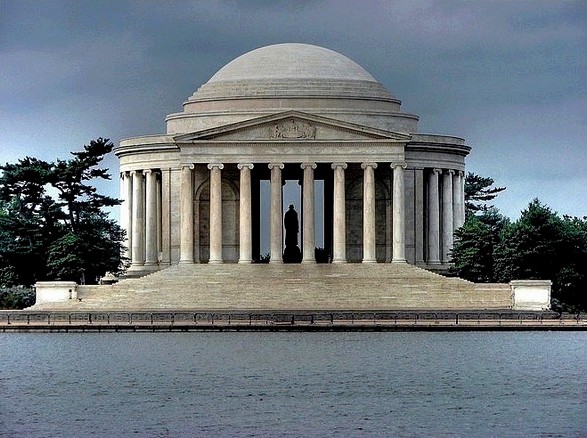|
|
LITR 4231
Early American Literature 2012 research post 1 |
|
Diego A. Gutierrez
March 29, 2012
In search of the truth about Creation
Growing up in a
country with diversity in not only ethnicity, but religion as well has exposed
me to a vast amount of ideas and beliefs on the creation of human kind and
evolution. All my life I have been raised in a very religious household with
strong beliefs on the theory of creation, backed up by strong faith in God. I
was always taught that God created everything and that this was just the way it
was. I never questioned the idea and rarely brought the topic up for discussion.
As I grew up and began studies on the theory of evolution, questions arose, but
never questioned my faith. At church I was told that God created me, and at
school I was told humans evolved from the monkey, but never thought of asking;
what does the church think about this theory of evolution, and what is the true
story of creation according to Christianity?
My research
commenced at the place I call my second home. I paid a visit to one of the nuns
at my place of worship. After asking a few questions to Sister Antonia Govea, a
sister of the Order of St. Therese, many things were clarified. According to Sr.
Antonia, the story of creation presented to Christians in the first book of the
Bible, Genesis, can be presented in three different ways; in a biblical way, an
anthropological way, and a theological way. “Genesis is biblical because it
tells of God creating the universe and everything in it in the first five days,
man on the sixth day, and a day of rest on the seventh day,” (Govea). This is a
story that we learn biblically and believe is true simply because of our faith.
The story of creation is anthropological, because we think of man as the “King
of what God created.” Sister Antonia mentioned that we can see man as the king
of God’s creation because God provided all for men and wanted men to share what
he had created, but in this case Adam did not know how to make use of what was
given to him and had everything taken away after not following what he was told.
The creation story can also be seen as theological because as Christians,
followers are taught that scripture is not scientific, and that the creation is
simply admitted through faith; it is just something that we believe and that is
the way it is.
Not being
satisfied with what I had learned from the interview and wanting more on the
topic I consulted a book that in my opinion every catholic should have. After
reading chapter 1 of the “Catechism of the Catholic Church,” I was able to
discover that, yes the question has always been there, how could one person
create everything in seven days? Catholics and other Christian based religions
have been trying to answer this question for ages. “By faith we understand that
the worlds were prepared by the word of God, so that what is seen was made from
things that are not visible,” (Youth Bible), in other words this is simply our
faith. We know God created the heavens and the earth and everything in it,
including humans, simply because it is our faith and that is just the way it is.
Catholics believe that “God creates freely out of nothing,” (C of the CC). There
was no need of material things for God to begin the creation of human beings.
Then I came across
a message form the late Pope John Paul II to the Pontifical Academy of Sciences
delivered on October 22, 1996. In this message, it sounds to me that Pope John
Paul II accepts the theory of evolution to a certain extent. John Paul II
states, “Truth cannot contradict truth,” (JP II). Therefore it sounds like Pope
John Paul II accepts the evolution theory, but mentions that God is still the
maker and creator of the human soul. John Paul also mentioned the ideas of his
predecessor Pius XII, “Pius XII has already affirmed that there is no conflict
between evolution and the doctrine of the faith regarding man and his vocation”
(JP II), but made it clear that they not loose “certain fixed points” (JP II),
referring to the idea that we need to set limits to the interpretation of
scripture to where it is not misinterpreted and sought with a different meaning,
which is not intended to have.
The theories of
creation, whether they may be Christian theories, or Darwin’s Theory of
Evolution, will always raise many questions; where did humans come from? Did God
really do it all in seven days? Do we come from monkeys? These are questions
that intrigue humans. After performing a research on the topic before mentioned,
my conclusion and belief is that in order to understand the creation story, one
must fully be involved in his or her religion. Having faith is the only way that
one can understand that God created everything out of nothing and that humans
did not evolve from the apes. The creation of the heavens and the earth and the
creation of Adam and Eve is just something that it is the way it is. Christians
just believe in it and there is no question about it; it’s just faith.
Works Cited
Libreria Editrice Vaticana. Catechism of the Catholic
Church. New York: Catholic Book Publishing Co., 1994
"Message to the Pontifical Academy of Sciences: on Evolution." 25 Mar. 2012.
Eternal Word Television Network.
<http://www.ewtn.com/library/papaldoc/jp961022.htm>.
Govea, Antonia. Personal Interview. 26 Mar. 2012.
The Catholic Youth Bible, New revised standard version: Catholic Edition.
Minnesota: Saint Mary’s Press., 1993
|
|
|
|


